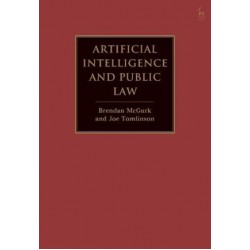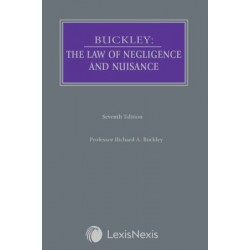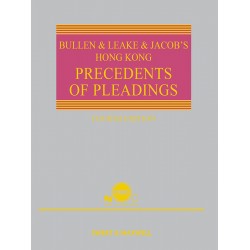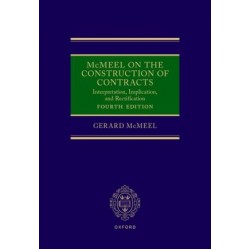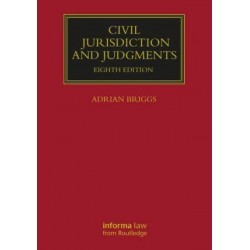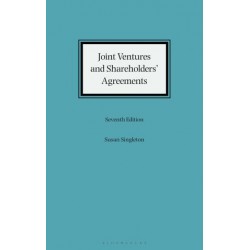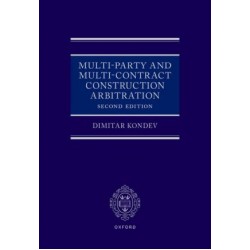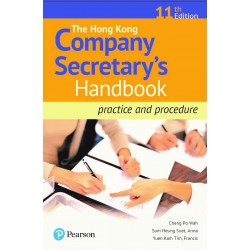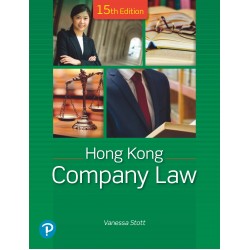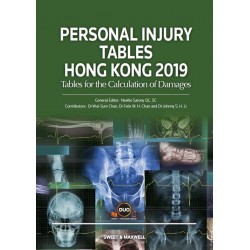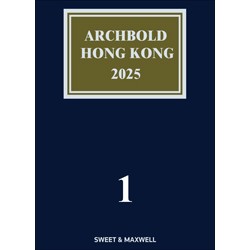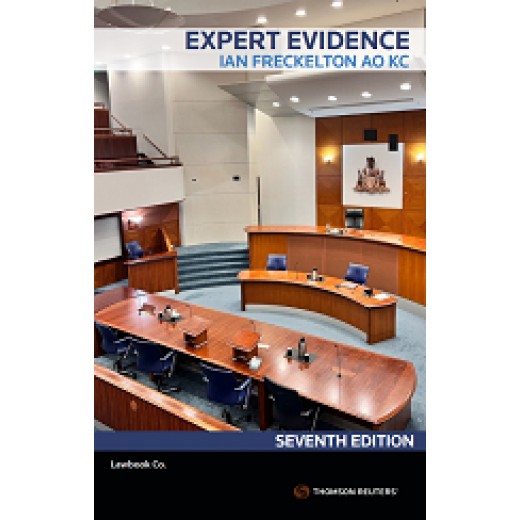Australia Title
"Its value to practitioners hardly requires elaboration ... Many a barrister faced with the daunting task of cross-examining an expert ... has turned to Freckelton’s text in his or her hour of need and found invaluable assistance... (This) work is commendably ambitious. It is difficult to think of a field of forensic expert evidence which is not discussed." - The Hon Justice Christopher Beale, Supreme Court of Victoria, (2020) 44 Crim LJ 196
The Seventh Edition of Expert Evidence is the acclaimed work of first resort for analysing the complex law and practice surrounding expert witnesses and expert evidence in personal injury, commercial, criminal and family law litigation. It has been cited for over two decades by superior courts in Australia, New Zealand and other countries and is the leading international work on its subject.
Expert Evidence analyses the common law and statutory criteria for expert evidence admissibility, providing advocacy guidance on how best to assist expert witnesses in courts and to hold them accountable in cross-examination. It discusses the optimal ways for managing concurrent evidence and expert conclaves prior to court hearings. It reviews decisions in relation to the disciplinary and civil liability of expert witnesses, and the potential for wasted costs orders to be made against experts, as well as the lawyers who commission them. It analyses the role of assessors, referees and court-appointed experts, as well as the forensic consequences of courts’ codes of conduct for experts, including when breaches of such codes may have adverse consequences. It also reviews trends in appellate case law in relation to trial judges’ decisions to admit and decline to admit expert opinions.
Expert Evidence also deals with specialist knowledge where admissibility and reliability issues have been encountered, including in relation to novel medical and scientific evidence, and counter-intuitive opinions from mental health professionals. It examines expert evidence on accounting, engineering, statistical, anthropological, survey, planning evidence, and foreign law matters.
The Seventh Edition has been further refined to increase accessibility to legal practitioners and experts from a range of disciplines, and to widen its scope. Its international focus is significantly enhanced with legal authorities from across the common law world being referred to and critiqued, reflecting increasing signs of the adoption of internationally consistent approaches to expert evidence.
Key new developments in the Seventh Edition include:
- Substantially revised chapters on expert reports and on concurrent evidence;
- A new chapter on international disputes and litigation dealing with both civil matters and important aspects of expert evidence given in international criminal law proceedings;
- Analysis of numerous important criminal law decisions, including a sequence of judgments in the United Kingdom and Australia regarding novel areas of scientific evidence such as gait analysis and shoeprint evidence;
- New case law from the High Court of Australia, and State Supreme Courts, the Canadian Supreme Court and the New Zealand Supreme Court and Court of Appeal, impacting upon the admissibility of diverse areas of expert evidence;
- Substantially revised chapters on DNA testing, statistical and probability evidence, evidence by psychiatrists and psychologists, especially in relation to diagnosis, PTSD evidence, critical incident stress intervention evidence, and memory evidence; and
- Significantly updated chapters on nursing evidence and medical evidence, including relevant case law on shaken baby/abusive head trauma evidence.


-250x250.jpg)

